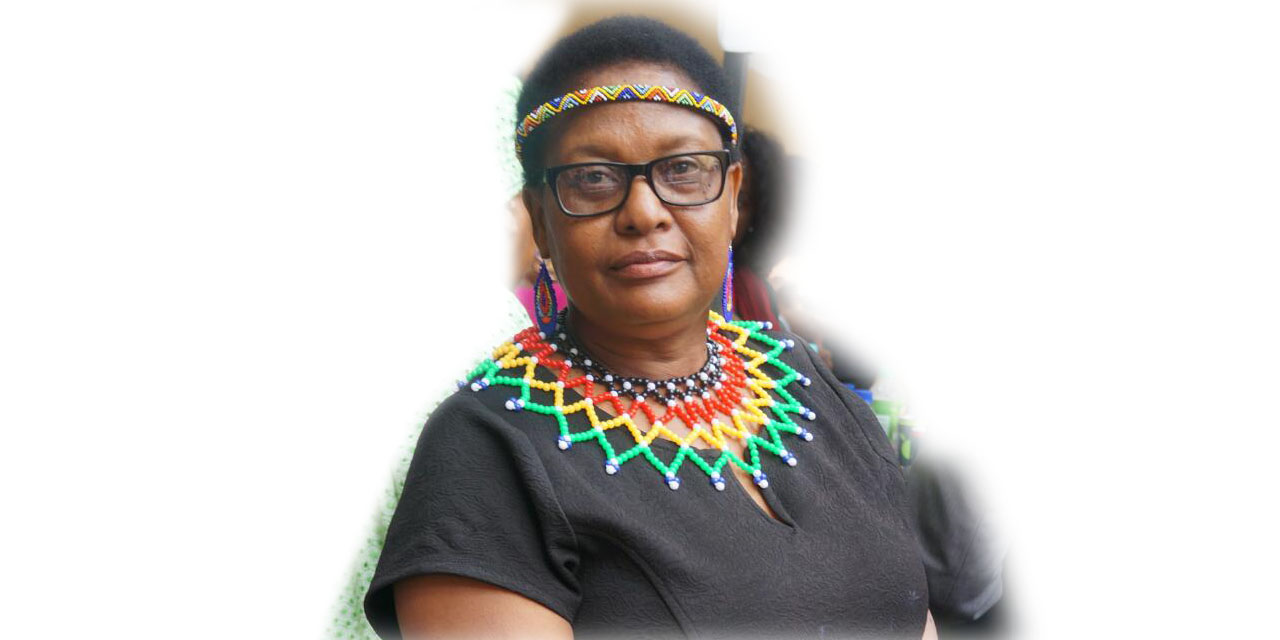Obrein Simasiku
Member of Parliament Elma Ndienda is concerned about the evolving banking technology that has seen the emergence of cardless payments, where one needs to tap a card in order to effect a purchase transaction without requiring a Personal Identification Number (PIN). This she feels leaves many vulnerable to theft, fraud and exploitation.
Although, Dienda appreciates banking transformation that has been ongoing over the years and has been brought good success, efficient and convenient banking development, however, it came with an array of possibilities of technology misuse.
“How is it even possible for your card to be useful without a pin? If it is possessed without one’s knowledge it can be used without one’s consent. Contactless transactions do not save a customer time. The entering of the card pin takes less than 10 seconds. So what time is being saved? Has there been a study made to assess consumer concerns over time spent on entering pins? What happens in cases where one taps a card by accident?” questioned a concerned Dienda as she asked for the August House to enact stringent regulations.
“Contactless payment has led to possibilities of technology misuse and has caused the theft of bank cards from unsuspecting parents and friends which resulted into direct financial loss. In my humble opinion, I believe the contactless feature of a card must be an option one can choose rather than it being an inherent feature on all new bank cards,” stated the Popular Democratic Movement MP, adding she has been very worried about contactless payment for a very long time.
She recounted that she once gave her bank card to her daughter to settle tuition fees at the University of Namibia, in which N$15 000 was transactioned using a contactless payment system; “this piqued my interest because this feature is very unorthodox and can be misused.”
On that note, she feels the need for banking pins as a form of security against theft that has worked well.
“Removing the need for a pin can be likened to the removal of a door to a room full of valuables because I would like easier access to this room. It doesn’t make a lot of sense. Hackers’ use all sorts of Trojans to remotely take any saved passwords customers might have used in the browsers making internet banking more dangerous than traditional banking because clients are unsuspecting and may never know how their monies are being stolen,” she reasoned.
Dienda also took issue with exorbitant branch services, as she advocates for fair fees to those who are underprivileged in the use of internet banking.
“Internet and ATM banking may not be the most user-friendly to senior citizens and persons residing in the most rural communities of Namibia. These persons are however forced to use ATM services they are not familiar with to avoid paying exorbitant fees. What makes traditional branch services so expensive? Why can traditional banking not be made available at similar internet banking fees for citizens that require it the most? These includes senior citizens, persons with disabilities and people residing in the most rural areas? Technology is beneficial and I have nothing against it but not everyone is not tech savvy in Namibia,” she remarked.
The outspoken MP added that, not everyone has access to a smart phone and the internet to start utilizing banking services, excellent network services nor data. “Therefore, in-branch banking services must be available at a similar fee to clients that do not have the ability to access internet banking,” she appealed.
“The number of people touched by and affected by this technology is enormous and is growing rapidly, especially with the increased availability of the Internet. The ethical issues themselves are also difficult to define, increasingly complex and diverse, and are growing as rapidly as the technology,” she argued.




